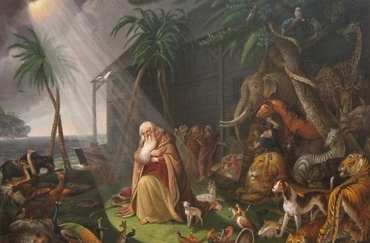1
もし人が証人に立ち、誓いの声を聞きながら、その見たこと、知っていることを言わないで、罪を犯すならば、彼はそのとがを負わなければならない。
2
また、もし人が汚れた野獣の死体、汚れた家畜の死体、汚れた這うものの死体など、すべて汚れたものに触れるならば、そのことに気づかなくても、彼は汚れたものとなって、とがを得る。
3
また、もし彼が人の汚れに触れるならば、その人の汚れが、どのような汚れであれ、それに気づかなくても、彼がこれを知るようになった時は、とがを得る。
4
また、もし人がみだりにくちびるで誓い、悪をなそう、または善をなそうと言うならば、その人が誓ってみだりに言ったことは、それがどんなことであれ、それに気づかなくても、彼がこれを知るようになった時は、これらの一つについて、とがを得る。
5
もしこれらの一つについて、とがを得たときは、その罪を犯したことを告白し、
6
その犯した罪のために償いとして、雌の家畜、すなわち雌の小羊または雌やぎを主のもとに連れてきて、罪祭としなければならない。こうして祭司は彼のために罪のあがないをするであろう。
7
もし小羊に手のとどかない時は、山ばと二羽か、家ばとのひな二羽かを、彼が犯した罪のために償いとして主に携えてきて、一羽を罪祭に、一羽を燔祭にしなければならない。
8
すなわち、これらを祭司に携えてきて、祭司はその罪祭のものを先にささげなければならない。すなわち、その頭を首の根のところで、摘み破らなければならない。ただし、切り離してはならない。
9
そしてその罪祭の血を祭壇の側面に注ぎ、残りの血は祭壇のもとに絞り出さなければならない。これは罪祭である。
10
また第二のものは、定めにしたがって燔祭としなければならない。こうして、祭司が彼のためにその犯した罪のあがないをするならば、彼はゆるされるであろう。
11
もし二羽の山ばとにも、二羽の家ばとのひなにも、手の届かないときは、彼の犯した罪のために、供え物として麦粉十分の一エパを携えてきて、これを罪祭としなければならない。ただし、その上に油をかけてはならない。またその上に乳香を添えてはならない。これは罪祭だからである。
12
彼はこれを祭司のもとに携えて行き、祭司は一握りを取って、記念の分とし、これを主にささげる火祭のように、祭壇の上で焼かなければならない。これは罪祭である。
13
こうして、祭司が彼のため、すなわち、彼がこれらの一つを犯した罪のために、あがないをするならば、彼はゆるされるであろう。そしてその残りは素祭と同じく、祭司に帰するであろう』」。
15
「もし人が不正をなし、あやまって主の聖なる物について罪を犯したときは、その償いとして、あなたの値積りにしたがい、聖所のシケルで、銀数シケルに当る雄羊の全きものを、群れのうちから取り、それを主に携えてきて、愆祭としなければならない。
16
そしてその聖なる物について犯した罪のために償いをし、またその五分の一をこれに加えて、祭司に渡さなければならない。こうして祭司がその愆祭の雄羊をもって、彼のためにあがないをするならば、彼はゆるされるであろう。
17
また人がもし罪を犯し、主のいましめにそむいて、してはならないことの一つをしたときは、たといそれを知らなくても、彼は罪を得、そのとがを負わなければならない。
18
彼はあなたの値積りにしたがって、雄羊の全きものを群れのうちから取り、愆祭としてこれを祭司のもとに携えてこなければならない。こうして、祭司が彼のために、すなわち彼が知らないで、しかもあやまって犯した過失のために、あがないをするならば、彼はゆるされるであろう。







